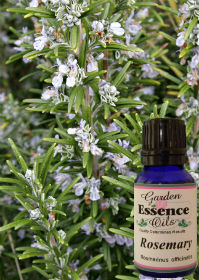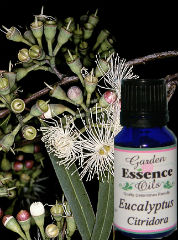|
Essential Oils are
naturally antiviral, anti-fungal, and
antibacterial,
they naturally
energize, deodorize, clean and refresh.
|
|
Free
Shipping on Essential Oil Orders of
$50.00 or more
|
50% Off Retail
on the Featured
Essential Oil of the Week!
Sale Starts on
Monday!
Making Essential Oils More Affordable
One Week at a Time.
|
Essential Oils For A Cough
|
essential; oil is recognized for its ability to
treat coughs and associated respiratory ailments
like pharyngitis, bronchitis, and sinusitis.
Analysis of Eucalyptus showed immune enhancing
effects acting as an efflux pump inhibitor,
influencing the body’s ability to deal with
bacteria.
Many products available in your pharmacy
incorporate Eucalyptus
oil to relieve congestion, including some cough
drops and vapor rubs. A study on children
concluded that the use of vapor rub eased
children’s nighttime coughs and congestion,
helping them get a better night’s sleep.
For inhalation
12 drops of the essential oil in 3/4 cup of
boiling water three times a day.
Create Your
Own All-Natural Homemade Chest Rub:
1/4 oz Organic Beeswax
1/4 cup Fractionated
Coconut oil
10 drops Eucalyptus
essential oil
10 drops Peppermint
essential oil
10 drops Wintergreen
, Or Birch
OR Fir
Needle essential oil
Gently melt the beeswax and olive oil/coconut
oil in a double boiler. Remove from heat, allow
it to slightly cool, then stir in essential
oils. Store in a small glass container. Apply it
to the bottoms of feet and chest.
|
Cinnamon
has a history of helping with bronchitis. One
study concludes the essential oil of Cinnamon
can be useful for stopping respiratory tract
pathogens diffused in the air. Cinnamon is one
the ingredients in Our popular Blend X
Plague Cinnamon
essential oil acts against common bacteria
reproducing.Try diffusing the essential oil into
the air or inhaling a few drops diluted in a
steaming bowl of water.
|
Rosemary
can calm the muscles in your trachea, giving you
respiratory relief. It is also tied to the
treatment of asthma. Rosemary is most commonly
mixed in a carrier oil and applied to the skin.
Like with cinnamon oil, try inhaling diluted
rosemary oil for relief.
|
Nutmeg
essential oil makes a difference when suffering
from respiratory conditions. Inhaling nutmeg
decreased respiratory tract fluids.
Try adding nutmeg essential oil to your diffuser
to see if it helps your cough. Adjust the amount
of nutmeg oil you diffuse based on the results
of your congestion relief. Nutmeg helps loosen
secretions (an expectorant).
|
Bergamot oil
relieves congestion. It contains the molecule
camphene. Inhaling camphene is linked to helping
relieve respiratory tract fluid.
Try Bergamot
essential oil in your diffuser or humidifier to
see if it relieves your cough.
|
Cypress
oil contains camphene. This molecule may help
reduce respiratory congestion if inhaled.
Fill a bowl with warm water and add a few drops
of Cypress
oil to see if it has any affect on your cough
and congestion.
|
Thyme
is used as an antimicrobial agent for
respiratory conditions.
Researchers studied Thyme
and other essential oils to determine the best
way to use them to fight respiratory tract
pathogens. The study concluded that thyme should
be diffused.
|
Geranium
has been found very effective in helping with
infections in the upper respiratory tract,
including bronchitis. Researchers looked at
several studies that measured the effect of
geranium with coughs. All the studies showed a
big improvement with the use of Geranium
and the relief of cough symptoms. Also Geranium
relieved symptoms of common colds and shortened
the illness’s duration.
|
Your cough may be a symptom of
asthma. You may find that lavender
essential oil helps your asthma symptoms. One
study indicates that lavender oil inhalation
inhibited airway resistance caused by bronchial
asthma.
Try inhaling lavender
with steam inhalation, a diffuser, or in a warm
bath to see if it can help your cough.
|
Got a hacking dry cough that
gives you no respite? Try any of these effective
essential oils for dry cough relief and how to
use them!
|
Dry cough is a type of cough
where a person coughs without expectoration or
mucus coming out. It usually occurs after a sore
throat, when your throat is itchy, irritated and
painful.
Dry coughs are
debilitating because no matter
how much you cough, nothing comes out and it is
persistent.
|
When you have a dry cough, it can
take long to get cured, even with conventional
medication. Dry coughs can also cause shortness
of breath and difficulty breathing. Chest pain
can also be experienced by those with dry cough
since coughing is strenuous and puts a lot of
pressure on the upper respiratory system.
Antispasmodic
Essential Oil Blend
The oils in this blend were selected
specifically for their ability to relax, calm,
and relieve tension of spastic muscles, for
sports injuries and fatigue, stress, and
headaches.
Home remedies are real gems when it comes to
cure dry coughing. They soothe the dry and
inflamed throat, promote easy breathing and
reduce inflammation. Let’s check out the best
essential oils for dry cough and how to use
them:
|
There are a quite a number of ways
to use essential oils for dry cough. The
most effective ones are:
Facial steaming
– See recipe below.
Gargling – To
gargle, fill a cup with 1 cup of very warm water
and stir in 1 tsp of salt. Now add 1 drop of tea
tree oil, 1 drop eucalyptus
oil and 1 drop of clove
oil. Stir well with a stainless steel stirring
rod then use it to gargle. Do this about 3 times
a day. And of course, spit it out, don't
swallow.
Vapor rub –
Make a DIY Essential Oil Vapor Rub and apply it
on your throat, chest, upper back and feet.
Cover your feet with socks.
1/4 oz Organic Beeswax
1/4 cup Fractionated
Coconut oil
10 drops Eucalyptus
essential oil
10 drops Peppermint
essential oil
10 drops Wintergreen
, Or Birch
OR Fir
Needle essential oil
Shower melts –
Make DIY Essential Oil Shower Melts
1 cup corn starch
½ cup baking soda
10 drops peppermint
oil
10 drops lemon
oil
Large bowl & whisk
Silicone cube tray
Spray bottle with water
Method
1- In a large bowl, dump in and
whisk the corn starch, baking soda, lemon oil
and peppermint oil.
2- Get the spray bottle and start
spritzing water into the bowl. While spritzing,
use your hand to mix and gather the powder into
little molds that form a shape. Make sure not to
add a lot of water: just enough to get the
ingredients to form a shape without falling
apart.
3- Now stuff the little molds
you’ve gathered into a silicone cube tray and
leave it to set for an hour or two in the
refrigerator.
4- Once set, carefully remove from
the silicone tray and store in a large mason
jar.
5- To use, toss one on the shower
floor near the drain. The heat and pressure of
the shower will melt the shower melt, releasing
the refreshing scent of peppermint and lemon
into the air.
Other
Essential Oils to Use for Shower Melts
Sweet orange
– beat depression
Grapefruit –
for energy
Lavender –
promoting peace and calm
Rosemary –
boosting memory
Vetiver –
refreshing the mind
Cedarwood –
increasing oxygenation to the brain
|
|
"Be Happy in the Moment, that is
Enough.
Each Moment is all we need, not more."
~Mother Teresa
|
| ESSENTIAL
OIL BLEND FOR SCRAPES
AND WOUNDS |
Make
your own in a roller bottle to carry with you:
Add the following essential oil to 1 oz Jojoba
Oil
5 drops Frankincense
5 drops Lavender
5 drops Helichrysum
WHY IT WORKS
Frankincense:
Is well known in skin care for its cicatrisant
(promotes the formation of scar tissue) and
cytophylactic (encourages growth of skin cells)
properties. Recommended for scars, wounds
and wrinkles. It is also used for raw, chapped
skin, hand care and mature skin.
Lavender:
Analgesic (eases the pain), anti-inflammatory,
antiseptic and cicatrisant. Its rejuvenating
properties make it useful for itchy skin, hand
care, cracked skin, bruises, wounds and burns.
Helichrysum:
It is recommended where there is inflamed tissue
which needs to be calmed down and regenerated.
It has anti-inflammatory properties and it’s
very useful for bruises, chapped skin and
hematomas.
Jojoba
Oil: Forms a fine, protective,
non greasy film. The skin becomes silky
and soft.
|
| Essential
Oils Especially For Women |
|
Cellulite:
Cypress,
Geranium,
Rosemary/Petitgrain.
Fluid
Retention:
Geranium,
Grapefruit,
Orange.
Heartburn:
Basil,
Cinnamon
Leaf, Lemon.
Labor
Pains:
Clary
Sage, Jasmine,
Lavender.
Menopause:
Chamomile,
Clary
Sage, Cypress,
Rose.
Menstrual
Cramps:
Clary
Sage, Cypress,
Jasmine.
Menstrual
Pain:
Clary
Sage,
Marjoram,
Rose.
Menstrual
Tension:
Bergamot,
Clary
Sage, Marjoram.
|
Morning
Sickness:
Orange,
Peppermint,
Rose.
Perineal
Pain:
Lavender,
Tea
Tree.
Post-Natal
Depression:
Lemon,
Neroli,
Orange.
Post-Natal
Fatigue:
Bergamot,
Geranium,
Orange.
Pre-Menstrual
Tension (PMT):
Bergamot,
Lavender,
Marjoram.
Stomach
Cramps:
Marjoram,
Peppermint,
Rosemary/Petitgrain.
Stretch
Marks:
Jasmine,
Lavender,
Neroli,
Orange.
Thrush:
Bergamot,
Lavender,
Tea
Tree.
|
Remedies
Just choose the
beginning letter of an ailment to find a remedy that
might help!
Link to how we know the
quality of our oils.
Dr.
Christopher Products -
Garden
Essence Essential Oils
Grandma's
Herbs
Don't forget prayer and listen to your body
as you take anything. Remember that even
doctors are only practicing.
God Bless each of you in your quest for health.
Lynne
«:*´`³¤³´`*:»§«»§«:*´`³¤³´`*:»§«»§«:*´`³¤³´`*:»§«
This statement is for educational purposes only
and is not intended to
diagnose, treat, cure or prevent any disease.
_,.-=*'`^`'*=-.,_,.-=*'`^`'*=-.,_,.-=*'`^`'*=-.,_
Alternative Health Resources
Website
-GardenEssenceOils.com
E-mail - Lynne@zhealthinfo.com
Telephone number
801-465-4949
We are committed to your health at the lowest
possible prices!
Quality determines results!!
~~~~~~~~~~~~~~~~~~~~~~~~~~~~~~~~~~~~~~~~~
Top
of Page
.
|
|








